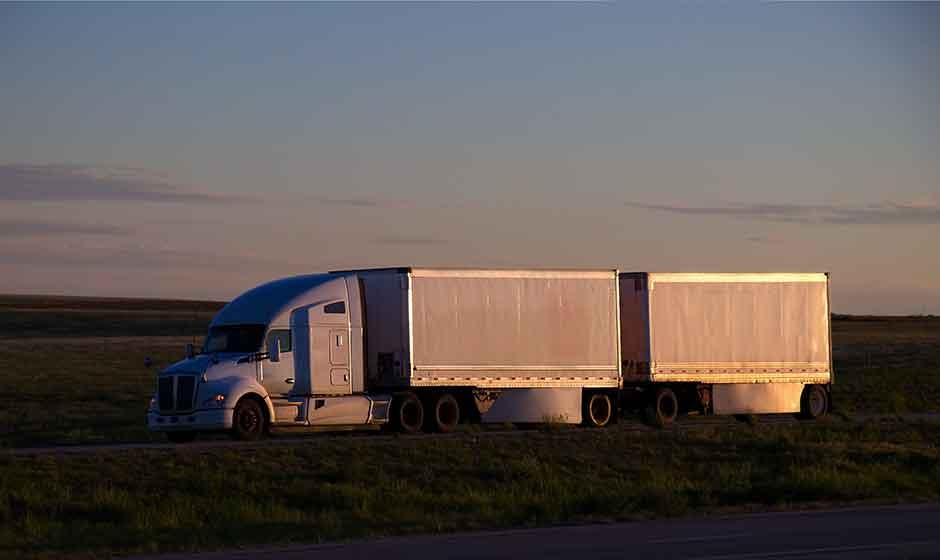
Practically every supply chain uses less-than-truckload (LTL) service in its transportation strategy. In the right situation, LTL shipping presents a convenient solution for shippers across industries.
However, if you’ve utilized LTL services in the past, you know how disruptive it can be when something goes wrong or communication fails. That’s why it’s important to have confidence in your LTL provider’s capabilities before granting them your business.
Unfortunately, building this confidence in such a saturated marketplace is easier said than done.
If you have questions about what a great LTL transportation company looks like or what you should consider when choosing one to add to your network of providers, look no further.
In this article, you’ll find a list of 10 LTL carriers that, based on ATS Logistics’s experience brokering LTL and full truckload (FTL) shipments since 1989 — and revenue numbers reported by Transport Topics — are best in class.
ATS Logistics is confident in our ability to connect shippers with their best-fit transportation solutions. As an industry-leading freight brokerage, we use many of the companies below to fulfill these duties.
That said, you deserve to have a seamless LTL shipping experience, even if ATS Logistics isn’t involved.
Below, we’ve provided a list of companies to consider adding to your network this year, as well as some tips for selecting your best-fit provider.
What is an LTL Carrier?
A less-than-truckload (LTL) freight carrier is a transportation company that specializes in moving smaller shipments of freight that don’t take up an entire truck.
Instead of one business filling a whole truck with their goods, an LTL carrier combines shipments from multiple businesses into the same truck.
This makes it more affordable for companies to send smaller loads, as they only pay for the space their freight uses.
LTL carriers use terminal locations and warehouses to sort and transfer shipments along the way, helping them reach their final destination more efficiently.
This type of shipping is especially well-suited to businesses that don’t need to send large amounts of freight at once, but still want a reliable transportation solution for their products.
Top 10 LTL Carriers to Consider in 2025
We determined which LTL carriers to include on this list by looking at a number of factors, including history in the industry, network size, reputation, and 2024 revenue.
While this is by no means a comprehensive list of the best LTL carriers, we designed this year’s list to be an ideal starting place for companies seeking a provider that consistently ranks among the most successful and reliable in the industry.
The following carriers are listed in alphabetical order:
- ABF Freight
- Central Transport
- Estes Express Lines
- FedEx Freight
- Old Dominion Freight Line
- R+L Carriers
- Saia Inc.
- Southeastern Freight Lines
- TFI International
- XPO
All revenue totals are sourced from Transport Topics. All other company details are sourced from either the company’s website or Transport Topics unless otherwise noted.
Any additional sources will be denoted with an asterisk (*) and stated at the bottom of the company’s feature.
ABF Freight System
The largest subsidiary of transportation provider ArcBest, ABF Freight System is one of the nation’s most trucked LTL carriers. ABF is the only 10-time winner of the American Trucking Association's (ATA) Excellence in Security award and the only 10-time winner of the ATA Excellence in Claims and Loss Prevention award.
Founded Date: 1923
Headquarters: Fort Smith, Ark.
2024 Revenue: $2.87B (est.)
Number of Trailers: 24,000+ (ArcBest)
Number of Tractors: 4,000+ (ArcBest)
Service Areas: U.S., Canada, Mexico, Puerto Rico
LTL Services: Standard, expedited, time-critical/guaranteed, final mile delivery, volume LTL, vendor compliance, trade show shipping
Central Transport
Known for its distinctive yellow trucks and trailers, Michigan-based Central Transport focuses on providing direct LTL services to “98 percent of the major manufacturing areas in the United States and Canada.” The majority of its 200+ service centers are located in the American Midwest, east, and southeast regions.
Founded Date: 1932
Headquarters: Warren, Mich.
2024 Revenue: $1.26B (est.)
Number of Trailers: 8,500+
Number of Tractors: 2,200+
Service Areas: U.S., Mexico, Canada
LTL Services: Standard, expedited, next-day, regional, long haul, hazardous materials, refrigerated
Estes Express Lines
Estes is the largest privately-held freight company in North America, boasting 280+ terminals in the U.S. and Canada. The company offers 7,000 next-day lanes, over 60 percent of which are direct with minimal handling.
Founded Date: 1931
Headquarters: Richmond, Va.
2024 Revenue: $4.34B (est.)
Number of Trailers: 41,000+ trailers
Number of Tractors: 10,000+ tractors
Service Areas: U.S., Canada, Mexico, Puerto Rico, and the Caribbean
LTL Services: Standard, expedited, time critical guaranteed, next day, short-haul, long-haul, cross-border, global freight forwarding, final mile
FedEx Freight
The largest LTL freight carrier in the U.S., FedEx Freight offers regional and national LTL service in North America. Its expansive network includes 400 service centers and a workforce some 40,000 employees strong.
In Dec. 2024, parent company FedEx Corp. announced its intention to spin off the subsidiary FedEx Freight into a separate, publicly-traded company within 18 months. The separation aims to “improve the value propositions of both companies by accelerating speed, improving coverage, and driving efficiencies that will lower the cost to serve,” according to the company.
Founded Date: 1971 (FedEx), 2002 (FedEx Freight)
Headquarters: Memphis, Tenn.
2024 Revenue: $9.05B (est.)
Number of Trailers: Information unavailable
Number of Tractors: 30,000+ (est.)
Service Areas: U.S., Canada, Mexico, Puerto Rico, and the U.S. Virgin Islands
LTL Services: Standard, time-definite (one-, two-, and three-day, retail), direct, retail in full, customized retail
Old Dominion Freight Line
With more than 90 years in the industry behind it, Old Dominion Freight Line is a regional, inter-regional, and national LTL company. Old Dominion has been named the #1 National LTL Carrier for Quality by market researcher Mastio & Company for 15 consecutive years, a record in the award’s history. The company also boasts a 99.4 percent on-time delivery rate and a 0.1 percent claims rate.
Founded Date: 1934
Headquarters: Thomasville, N.C.
2024 Revenue: $5.86B (est.)
Number of Trailers: 31,000+*
Number of Tractors: 10,000+
Service Areas: U.S., Mexico, Canada, Puerto Rico, and the U.S. Virgin Islands
LTL Services: Standard, expedited, time-definite/guaranteed
R+L Carriers
R+L Carriers is a family-owned and -operated company with six decades of industry experience behind it. R+L advertises a 99.6 percent exception-free delivery rate and a 98 percent on-time performance rate.
Founded Date: 1965
Headquarters: Wilmington, Ohio
2024 Revenue: $3.07B (est.)
Number of Trailers: 20,000+
Number of Tractors: 8,000+
Service Areas: U.S., Canada, Mexico, Puerto Rico, the U.S. Virgin Islands, and the Dominican Republic
LTL Services: Standard, expedited, time-critical/guaranteed, cross-border, liftgate, offshore, hazardous materials, refrigerated and freeze protection, final mile
Saia Inc.
Georgia-based Saia celebrated 100 years in business in 2024. The company’s coverage areas span nearly 60,000 zip codes and include 12,000 one- and two-day lanes. The majority of the shipments Saia moves — 85 percent — are delivered within 48 hours.
Founded Date: 1924
Headquarters: Johns Creek, Ga.
2024 Revenue: $2.9B (est.)
Number of Trailers: 20,000+*
Number of Tractors: 6,200+*
Service Areas: U.S., Canada, Mexico, Puerto Rico
LTL Services: Standard, expedited, retail, customized solutions
Southeastern Freight Lines
Southeastern Freight Lines is a regional LTL company operating primarily in the southern half of the U.S. The company has almost 90 service centers and provides 99.35% on-time service in its next-day shipping lanes.
Founded Date: 1950
Headquarters: Lexington, S.C.
2024 Revenue: $1.6B (est.)
Number of Trailers: 6,000+*
Number of Tractors: 2,800+
Service Areas: Specializes in next-day service to the southern half of the U.S. and operates service centers in 13 states and Puerto Rico. Southeastern also has a network of service partners providing LTL solutions throughout the remaining 37 states, Canada, Mexico, and the U.S. Virgin Islands.
LTL Services: Standard regional, next-day, guaranteed, assembly and distribution, carpet transportation special services, final mile
TFI International
TFI International offers over-the-road (OTR) and intermodal LTL solutions via 15 operating companies in the U.S. and Canada. Its model is built on strategic acquisitions of smaller companies in key cities to continuously broaden its North American network. In April 2024, TFI International acquired Daseke, Inc., one of the leading flatbed and specialized transportation and logistics companies in North America, for $1.1B.
Founded Date: 1957
Headquarters: Montreal, Quebec, Canada
2024 Revenue: $2.8B (est.)
Number of Trailers: 34,600+
Number of Tractors: 11,400 company-owned and 7,500 owner-operated
Service Areas: U.S., Canada, Mexico
LTL Services: Standard, intermodal
XPO
XPO has expanded rapidly since its founding 25 years ago, now encompassing 600+ locations around the world. The company’s extensive LTL network covers over 99 percent of all U.S. zip codes through a single source.
Founded Date: 2000
Headquarters: Greenwich, Conn.
2024 Revenue: $4.47B (est.)
Number of Trailers: 34,000
Number of Tractors: 9,600
Service Areas: U.S., Canada, Mexico, Puerto Rico, the Caribbean, Europe
LTL Services: Standard, regional, interregional, time-critical/guaranteed, rapid remote, refrigerated, retail, trade show shipping, product rollout, exclusive use
How to Select Your LTL Carrier (Vetting Tips)
Before you choose an LTL carrier, it’s important to establish some key criteria by which to vet the contenders. Doing so makes it that much easier for you to connect your company with its absolute best-fit LTL carrier.
Whether you’re vetting companies from this list or not, here are a few things we recommend taking a closer look at:
Communication Skills and Methods
Having easy, open lines of communication with your transportation providers is important. This is especially true of your LTL carriers.
LTL shipping is an intricate process full of routine stop-offs and handling points along the way. To combat any anxieties about the state of your freight during these shipments, it’s best to make sure you’re comfortable with your carrier point of contact from the outset.
Early in your carrier vetting process, ask who your point of contact will be and what their experience is like. Ideally, your company would have a single point of contact for all shipments with your LTL carrier, but you may also be directed to a small team of contacts.
Once identified, ask your point of contact what their preferred lines of communication are and when they will be available to you.
Good LTL carriers offer both asynchronous (digital) and direct options for communication. This makes it easy to reach your provider with questions about projected arrival times, delays, or any concerns you may have before, during, and after transport.
The right carrier will go the extra mile to ensure communication is seamless from the start. If you don’t feel comfortable with a carrier’s communication practices, it’s likely not the right carrier for you.

Service Areas
Like other asset-based providers, LTL trucking companies have preferred service areas — locations, lanes, and/or regions that they service most frequently and competently. When a shipment moves within a company’s core service area(s), you may see it referred to as “regional service.”
In the LTL space, core service areas are generally based on where a company’s assets (trucks, trailers, drivers, and terminals) are located.
For the most part, the companies listed above have nationwide (or even international) service areas, though many also have regional service areas in the contiguous U.S. in which they do the bulk of their business.
Expansive LTL networks are advantageous for many reasons, not least of all the reassurance that the carrier in question will be able to meet your company’s diverse needs anywhere in the country.
But the ability to provide coast-to-coast coverage is not the same as the ability to provide consistent, high-quality service anywhere in the country. Not all LTL companies have the resources and infrastructure to deliver exceptional service everywhere in their network.
Providing these services is a labor- and cost-intensive process, limiting under-resourced companies from doing so at a high level.
To ensure your carrier can reliably and competitively move your LTL cargo, ask a few key questions about their service areas, assets, and core competencies:
- Where are their terminals located?
- How many trucks and trailers do they own?
- Which regions do they service most frequently?
- How do they guarantee consistent service quality across all service areas?
Asking these questions can help you determine whether a carrier can actually meet your company’s needs reliably, no matter where servicing those needs may take them.
Technology Usage
Technology has made an impact on the vast majority of freight services, and LTL is no exception. In fact, we’d venture to say the LTL marketplace has changed more than most in the digital age.
LTL shipments typically take longer than both partial- and full-truckload services, and timelines can be unpredictable. This unpredictability makes it harder for shippers and consignees to manage their supply chains efficiently.
Thankfully, recent leaps in technology have made timely in-transit visibility during LTL freight movement far more accessible.
The technology of today gives shippers far more control over their LTL shipments by providing up-to-the-minute freight tracking, historical data analysis, quote requests, document storage, and more. These conveniences can often be accessed via a self-service digital customer portal.
The best carriers make investments in these technologies to ensure each customer is given all of the information and tools necessary to succeed. These are the LTL carriers you’ll want to utilize — the ones that use a robust suite of technologies to improve your experience.
Performance History
Another thing you’ll want to consider when selecting your next LTL provider is the carrier’s performance history. This information should be easy to find, as great transportation providers openly share it.
As you vet potential LTL providers, be sure to verify their claims rates, on-time performance percentages, and other quality-related data.
By confirming that a carrier’s performance matches up to your own standards, you can more clearly determine whether that provider will deliver the reliability and excellence you deserve.
Related: Transportation Provider KPIs: How to Evaluate the Performance of Your Network
Fine-Tune Your Transportation Network
Clearly, choosing the right LTL carrier is an essential step in optimizing your supply chain. The carriers listed here have proven themselves in terms of service coverage, reliability, and performance, making them excellent options to consider for your transportation network.
However, selecting the best-fit provider requires more than just picking from a list — it means closely evaluating communication practices, service areas, technology capabilities, and historical performance to ensure a seamless shipping experience.
By taking the time to vet potential LTL carriers based on these key factors, you can build a strong and efficient transportation network that supports your business goals.
Speaking of networks: Are you working with the right number of providers? You may be surprised to learn that you’re working with too few — or too many.
Read our article answering the question How Many Transportation Providers Should You Have? to learn more about finding the ideal balance of carriers for your shipping needs.





